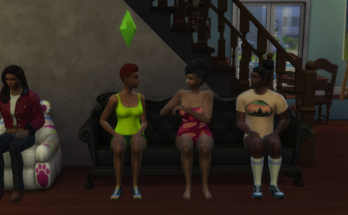The second offering of my Online Feminist Spaces class ended this Monday. As I’ve said before, the Pitzer version of the class found the majority of students studying “in-between spaces” online where a feminist/queer identity was central to the mission of the site, but a a corporate, mainstream, or satiric sensibility worked to preclude a more political, not to mention radical understanding of feminism in the site’s structure, experience, and purpose.
Our field trip to Occupy LA was also a defining experience for this class, and from these two positions—in-between and on-the-edge—comes the idea in the title: Context is Political. This adage signifies our growing idea that a feminist action, idea, goal, or identity only becomes political in context: i.e. in a community, an embrasive or democratic structure, an oppositional space, a home, online.
- feminism (and queerness) can not be disentangled from anti-racism. While many “in-between” sites comfortably ascribe to a “feminist” politics, their blind eye to, inattention concerning, or fear of a linked race-based analysis unmakes their claims to a progressive politics.
- feminism can not be disentangled from politics. A passive “feminist” orientation, or way-of-being, or sensibility that is not connected to action unmakes claims to progressive politics.
- feminism can not be disentangled from democracy, however democratic spaces are not necessarily feminist or anti-racist. In fact, democratic spaces are often anti-feminist and racist.
- feminism needs to be disentangled from the corporate.
- feminism must be entangled with community and conversation. The Internet’s common culture of commenting, where each person democratically speaks her mind without entangling her thoughts with those of others that come after or before, or in a continuing and building dialogue, does not lead to political possibility (this does not even begin to describe “YouTube commenting” culture: that kind based on insults, inanity, and innuendo). What one students calls “an online-only feminism” is defined by mistaking freedom of one’s own expression as itself enough, or even political.
- feminism happens best in real time and real space, which includes temporally and spatially coherent and shared digital experiences that are linked to warranted bodies.

